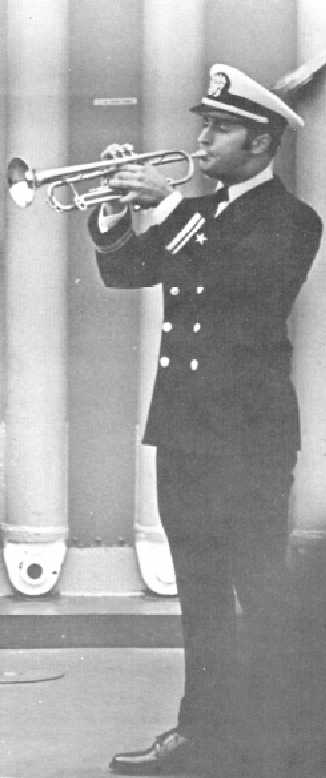287.18(M1)
Figure 4-17.—Final Taps.
which they are assigned, civilian clergypersons or
visiting chaplains may officiate as requested by the
couple. The officiating chaplain or clergyperson will
most likely be of the same faith as the couple.
Since chaplains like other Navy personnel are
subject to being transferred, it can be expected
that customs and procedures regulating marriage
ceremonies in chapels will change over a period of
time. This being the case the chapel brochure
should reflect current practices in the chapel.
FEES.—Chaplains on active duty are paid by
the Government and are prohibited by law from
charging fees or receiving gratuities for services
rendered
to
military
personnel
and
their
dependents.
When
a
civilian
clergyperson
(minister, priest, or rabbi) assists the chaplain at a
wedding or when clergypersons officiate at
weddings in their own churches or synagogues,
they normally receive a fee.
PREMARITAL COUNSELING.—The preparation
for marriage includes much more than arranging
for the ceremony. Whether it is to a formal military
wedding or a simple ceremony the chaplain or
clergyperson may desire to spend time in
counseling the couple before the wedding takes
place. Some faiths have special requirements
associated with premarital counseling. The RP will
need to obtain this information from the officiating
chaplain or clergyperson.
The RP should schedule premarital counseling
sessions in coordination with the request of the
chaplain and the couple concerned. The RP should
schedule the wedding, rehearsals, and related
activities as directed by the chaplain. The chaplain
may specify, in writing, any special items or areas
of concern which need to be addressed prior to the
scheduling of the rehearsal or the wedding
ceremony. These instructions should be placed on
file with the application for use of the chapel to
permit immediate followup by the RP and for
future reference.
The Chapel
The chapel is usually reserved on a first
come, first served basis in accordance with
4-24


